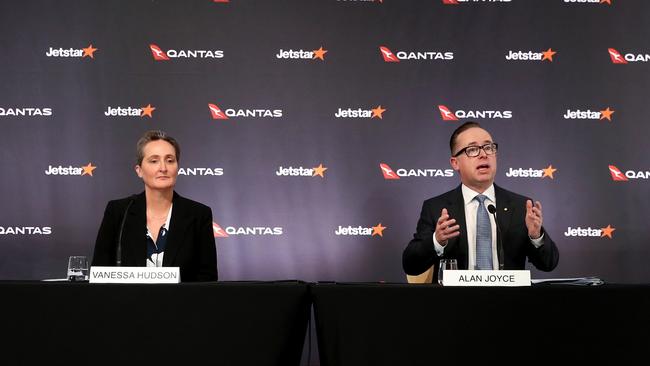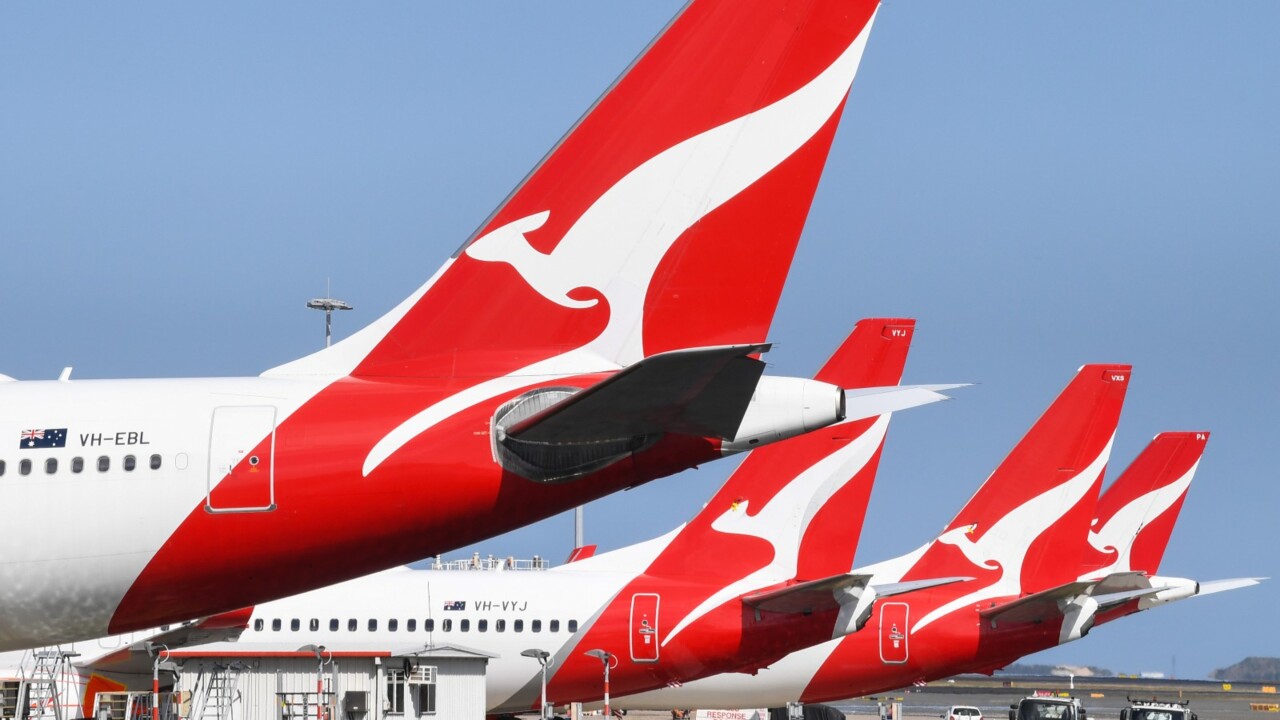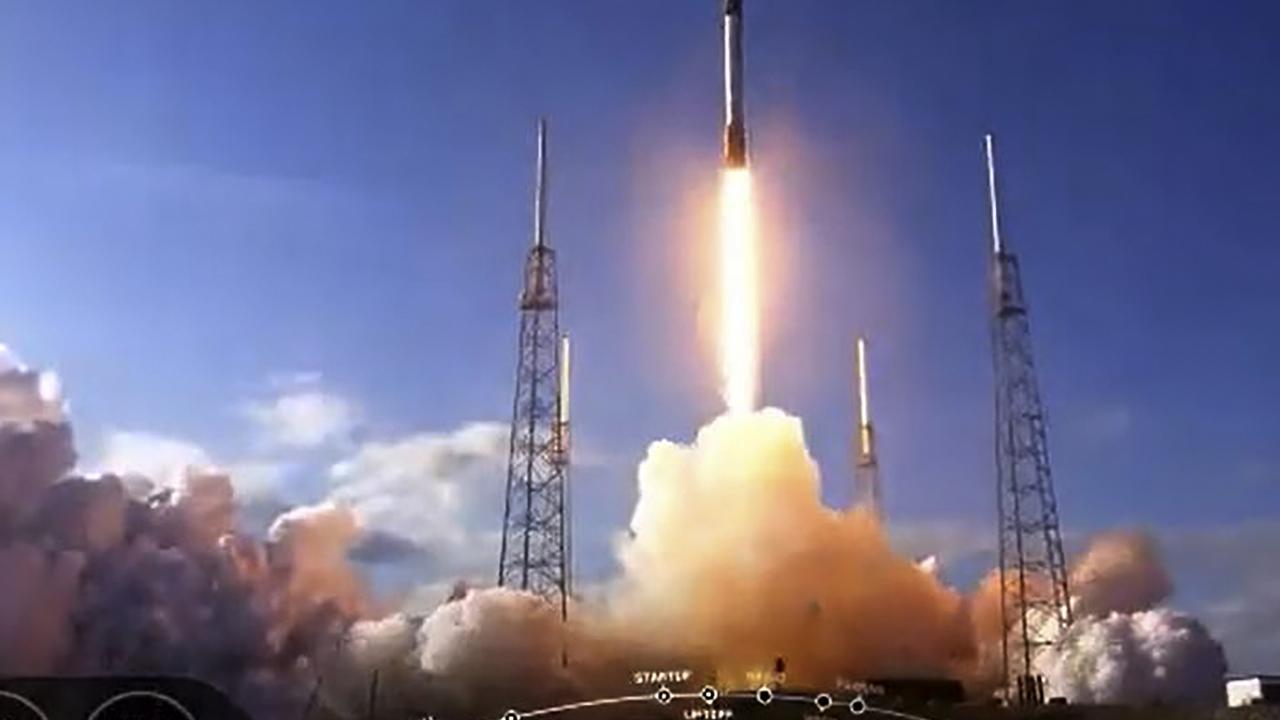New Qantas CEO facing a huge task of rebuilding trust with travellers and workers: unions
Alan Joyce’s successor as Qantas CEO will have their work cut out for them rebuilding trust with the workforce and travellers, unions have declared.

Business
Don't miss out on the headlines from Business. Followed categories will be added to My News.
As the Qantas board considers who should replace Alan Joyce as CEO, unions have warned his successor will face a huge task of rebuilding trust with the airline’s workforce and the travelling public.
A new CEO is expected to be announced by mid-year, with chief financial officer Vanessa Hudson and Qantas Loyalty boss Olivia Wirth the frontrunners.
Australian and International Pilots Association president Tony Lucas said they would deal with whoever was across the table but predicted the new CEO would face “an interesting time”.
“I don’t envy the new CEO, I think they’re going to have their work cut out for them,” said Captain Lucas.
“There’s a significant CAPEX spend coming, and I think the new CEO is going to have to do a fair bit to rebuild the trust of the travelling public and with a lot of the workforce as well.”
He said importantly the spirit of Australia was “bigger than just one person” and most Qantas pilots predated Mr Joyce, and many his predecessor (Geoff Dixon).
“While the CEO has a significant and direct impact on the future of the airline, I would hope the travelling public understands that those of us who love the place are in it for the long haul, and that they will continue to support Qantas the way they have,” Captain Lucas said.
The Transport Workers Union, Australian Services Union and Flight Attendants Association of Australia took a similar view, saying industrial relations under Mr Joyce had sunk to a historic low.
TWU national secretary Michael Kaine said his successor should “immediately focus on treating employees as an investment rather than a cost to be splintered into the most economically downtrodden pieces”.
“The new CEO has got to be courageous enough to break away from that Joyce management model of executive greed, and turn Qantas in a new direction and that begins by engaging with the workforce who’ve been let down at every turn by the Qantas approach,” said Mr Kaine.

FAAA national secretary Teri O’Toole was also hopeful a new CEO would adopt a more conciliatory approach to enterprise bargaining.
She said Mr Joyce would be most remembered for his “attacks on workers’ conditions to make massive profits for shareholders”.
“Their whole enterprise bargaining tactics have been so aggressive, it’s not bargaining in any shape or form,” said Ms O’Toole.
“They tell you what you’ll get. It’s never ‘we want this and we’re happy to give you that in the process’. What we’d like to see is a return to the day where they want to work with us, with unions, and they want to recognise what’s important to their employees.”
ASU assistant national secretary Emeline Gaske said they would like to see an immediate reversal of the Qantas policy to outsource and offshore jobs.
She said the focus on cuts and outsourcing had only damaged the Qantas brand, and decimated the lives of loyal workers.
Mr Kaine said it would not only be employees glad to see the back of Mr Joyce but the wider Australian community, who felt let down by his management of Qantas.
“He’s taken an approach that has consistently said ‘when times are good, keep your hands off our profits we need to build up for a rainy day’ and when times are bad, Alan Joyce has gone cap in hand through the halls of parliament seeking community support,” said Mr Kaine.
“He’s received that without strings attached and we as a community are suffering the consequences of that.”
Captain Lucas said a new CEO would need to urgently address the Qantas fleet situation, with billions of dollars in expenditure needed to rebuild the international fleet.
Although a dozen A350-1000s were on order to fly Project Sunrise ultra-long-haul routes, they would not arrive for several years, leaving Qantas with limited capacity in the meantime.
“We’ve got three (Boeing) 787s coming, we probably need another four on top of that. We’ve got 49 options (for 787s) but if you order those now, it’s probably three-and-a-half years before the jet turns up,” Captain Lucas said.
“So that means no increase in the main line fleet for the next four years, and at the same time, two A330s have just been sent to Germany to be converted into freighters. At a time when you’re short of passenger capacity, it seems a strange decision to make.”
Qantas declined to answer questions about the CEO replacement process.
More Coverage
Originally published as New Qantas CEO facing a huge task of rebuilding trust with travellers and workers: unions





